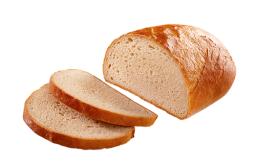Bread to kilos
They brought in d two kilos and t three kilos of bread to the store. By the end of the day, they sold 14 two-kg bread. How many kilos of bread remained in the store by the next day?
Final Answer:

Tips for related online calculators
Do you have a linear equation or system of equations and are looking for its solution? Or do you have a quadratic equation?
You need to know the following knowledge to solve this word math problem:
algebranumbersUnits of physical quantitiesGrade of the word problem
Related math problems and questions:
- Bread black white
 They sold 452 loaves of bread in the store. They sold three times more black bread than white bread. How much white and black bread did they sell in the store?
They sold 452 loaves of bread in the store. They sold three times more black bread than white bread. How much white and black bread did they sell in the store? - Potatoes
 For three days, the store sold 1400 kg of potatoes. On the first day, they sold 100 kilograms of potatoes less than on the second day. On the third day, three-fifths of what they sold the first day. How many kgs of potatoes are sold every day?
For three days, the store sold 1400 kg of potatoes. On the first day, they sold 100 kilograms of potatoes less than on the second day. On the third day, three-fifths of what they sold the first day. How many kgs of potatoes are sold every day? - Fabric package
 They sold one-fifth of the fabric package in the store, and 44m of fabric remained in it. How many meters of material were in the package?
They sold one-fifth of the fabric package in the store, and 44m of fabric remained in it. How many meters of material were in the package? - Flour amount
 They baked one-third of the flour on the first day in the bakery and used 75% of the rest the next day. On the third day, 120 kg of flour remained. How much flour did they have in the beginning?
They baked one-third of the flour on the first day in the bakery and used 75% of the rest the next day. On the third day, 120 kg of flour remained. How much flour did they have in the beginning? - Vegetables - store
 They brought 1610 kg of vegetables and 887 kg less fruit to the warehouse. How many kg did they get together?
They brought 1610 kg of vegetables and 887 kg less fruit to the warehouse. How many kg did they get together? - They brought
 They brought 180 kg of grapes to the market. They sold 72 kg of them. What part of the grapes did they sell?
They brought 180 kg of grapes to the market. They sold 72 kg of them. What part of the grapes did they sell? - Ice cream servings
 They sold 4/7 strawberry ice cream and 36 servings of vanilla ice cream in the store. How many servings of ice cream did they sell that day?
They sold 4/7 strawberry ice cream and 36 servings of vanilla ice cream in the store. How many servings of ice cream did they sell that day?
